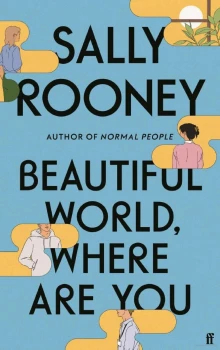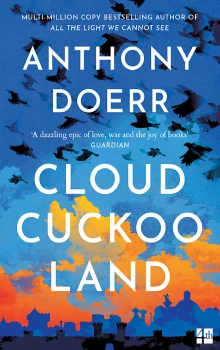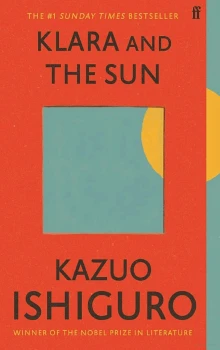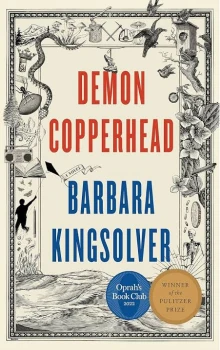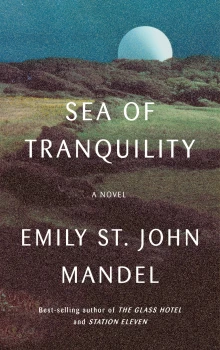Further to my email about the total stranger: Felix is our age, twenty-nine. If you want to know whether I’ve slept with him, I haven’t, but I don’t think that piece of information can shed much light on the situation for you. We did go on one unsuccessful date, which I told you about at the time, but since then nothing. I suppose what you’re really asking is not whether particular sexual acts have taken place between us, but whether my relationship with him has a sexual aspect overall. I think it does. But then, I think that about every relationship. I wish there was a good theory of sexuality out there for me to read. All the existing theories seem to be mostly about gender – but what about sex itself? I mean, what even is it? To me it’s normal to meet people and think of them in a sexual way without actually having sex with them – or, more to the point, without even imagining having sex with them, without even thinking about imagining it. This suggests that sexuality has some ‘other’ content, which is not about the act of sex. And maybe even a majority of our sexual experiences are mostly this ‘other’. So what is the other? I mean, what do I feel for Felix – who by the way has never even physically touched me – that makes me think of our relationship as a sexual one?
The more I think about sexuality, the more confusing and various it seems to me, and the more paltry our ways of talking about it. The idea of ‘coming to terms’ with your sexuality: this seems to mean, basically, coming to understand whether you like men or women. For me, realising that I liked both men and women was maybe one per cent of the process, maybe not even that much. I know I am bisexual, but I don’t feel attached to it as an identity – I mean I don’t think I have anything special in common with other bisexual people. Almost all the other questions I have about my sexual identity seem more complicated, with no obvious way of finding answers, and maybe even no language in which to articulate the answers if I ever did find them. How are we ever supposed to determine what kind of sex we enjoy, and why? Or what sex means to us, and how much of it we want to have, and in what contexts? What can we learn about ourselves through these aspects of our sexual personalities? And where’s the terminology for all this? It seems to me we walk around all the time feeling these absurdly strong impulses and desires, strong enough to make us want to ruin our own lives and sabotage our marriages and careers, but nobody is really trying to explain what the desires are, or where they come from. Our ways of thinking and speaking about sexuality seem so limited, compared to the exhausting and debilitating power of sexuality itself as we experience it in our real lives. But having typed all that to you, I wonder if you think I sound crazy, because maybe you don’t feel sexual desire anywhere near as strongly as I do – maybe no one does, I don’t know. People don’t really talk about it.
At times I think of human relationships as something soft like sand or water, and by pouring them into particular vessels we give them shape. So a mother’s relationship with her daughter is poured into a vessel marked ‘mother and child’, and the relationship takes the contours of its container and is held inside there, for better or worse. Maybe some unhappy friends would have been perfectly contented as sisters, or married couples as parents and children, who knows. But what would it be like to form a relationship with no preordained shape of any kind? Just to pour the water out and let it fall. I suppose it would take no shape, and run off in all directions. That’s a little like myself and Felix, I think. There is no obvious path forward by which any relation between us can proceed. I don’t believe he would describe me as a friend, because he has friends, and the way he relates to them is different from the way he relates to me. He’s much more removed from me than I think he is from them, and at the same time we’re in certain senses closer, because there are no boundaries or conventions by which our relationship is constrained. What makes it different in other words is neither him nor me, nor any special personal qualities pertaining to either of us, nor even the particular combination of our individual personalities, but the method by which we relate to one another – or the absence of method. Maybe eventually we will just drop out of each other’s lives, or become friends after all, or something else. But whatever happens will at least be the result of this experiment, which feels at times like it’s going badly wrong, and at other times feels like the only kind of relationship worth having.
Other than my friendship with you, I hasten to add. But I think you’re wrong about the instinct for beauty. Human beings lost that when the Berlin Wall came down. I’m not going to get into another argument with you about the Soviet Union, but when it died so did history. I think of the twentieth century as one long question, and in the end we got the answer wrong. Aren’t we unfortunate babies to be born when the world ended? After that there was no chance for the planet, and no chance for us. Or maybe it was just the end of one civilisation, ours, and at some time in the future another will take its place. In that case we are standing in the last lighted room before the darkness, bearing witness to something.
I offer one alternative hypothesis: the instinct for beauty lives on, at least in Rome. Of course it’s possible to visit the Vatican Museum and see the Laocoon, or go to that little church and put a coin in the slot to see the Caravaggios – and at the Galleria Borghese there’s even Bernini’s Proserpina, of which Felix, a born sensualist, professes himself a particular fan. But there are also dark fragrant orange trees, little white cups of coffee, blue afternoons, golden evenings …
Have I told you I can’t read contemporary novels anymore? I think it’s because I know too many of the people who write them. I see them all the time at festivals, drinking red wine and talking about who’s publishing who in New York. Complaining about the most boring things in the world – not enough publicity, or bad reviews, or someone else making more money. Who cares? And then they go away and write their sensitive little novels about ‘ordinary life’. The truth is they know nothing about ordinary life. Most of them haven’t so much as glanced up against the real world in decades. These people have been sitting with white linen tablecloths laid out in front of them and complaining about bad reviews since 1983. I just don’t care what they think about ordinary people. As far as I’m concerned they’re speaking from a false position when they speak about that. Why don’t they write about the kind of lives they really lead, and the kind of things that really obsess them? Why do they pretend to be obsessed with death and grief and fascism – when really they’re obsessed with whether their latest book will be reviewed in the New York Times? Oh, and many of them come from normal backgrounds like mine, by the way. They’re not all children of the bourgeoisie. The point is just that they stepped right out of ordinary life – maybe not when their first book came out, maybe it was the third or fourth, but anyway it was a long time ago – and now when they look behind them, trying to remember what ordinary life used to be like, it’s so far away they have to squint. If novelists wrote honestly about their own lives, no one would read novels – and quite rightly! Maybe then we would finally have to confront how wrong, how deeply philosophically wrong, the current system of literary production really is – how it takes writers away from normal life, shuts the door behind them, and tells them again and again how special they are and how important their opinions must be. And they come home from their weekend in Berlin, after four newspaper interviews, three photoshoots, two sold-out events, three long leisurely dinners where everyone complained about bad reviews, and they open up the old MacBook to write a beautifully observed little novel about ‘ordinary life’. I don’t say this lightly: it makes me want to be sick.
The problem with the contemporary Euro-American novel is that it relies for its structural integrity on suppressing the lived realities of most human beings on earth. To confront the poverty and misery in which millions of people are forced to live, to put the fact of that poverty, that misery, side by side with the lives of the ‘main characters’ of a novel, would be deemed either tasteless or simply artistically unsuccessful. Who can care, in short, what happens to the novel’s protagonists, when it’s happening in the context of the increasingly fast, increasingly brutal exploitation of a majority of the human species? Do the protagonists break up or stay together? In this world, what does it matter? So the novel works by suppressing the truth of the world – packing it tightly down underneath the glittering surface of the text. And we can care once again, as we do in real life, whether people break up or stay together – if, and only if, we have successfully forgotten about all the things more important than that, i.e. everything.
My own work is, it goes without saying, the worst culprit in this regard. For this reason I don’t think I’ll ever write a novel again.
You were in a bad mood writing that last message and said some very morbid things about wanting to die for the revolution. I hope by the time you receive this reply you will be thinking more about wanting to live for the revolution, and what such a life would look like. You say that few people care what happens to you, and I don’t know if that’s true, but I do know that some of us care very, very much – e.g. myself, Simon, your mother. I also feel certain it’s better to be deeply loved (which you are) than widely liked (which you probably also are! but I won’t labour the point). I’m sorry for complaining so much about book publicity, which is something no sane person could ever care to hear about – and I’m sorry for telling you I was going to take an extended break from publicity and then flying to Rome to promote my book because I am cowardly and hate letting people down. (I would apologise that we didn’t get to see each other before my flight, but that actually wasn’t my fault – the publishers booked me a car to the airport.) You’re right that I make too much money and live irresponsibly. I know I must bore you, but only as much as I bore myself – and I also love you, and feel grateful to you, for everything.
Anyway, yes, please do come to see me after the wedding. Shall I invite Simon along as well? Together, the two of us can surely explain to him why it is wrong for him to date incredibly beautiful women who are younger than us. I’m not totally sure yet why it would be wrong, but between now and then I can definitely come up with something. All my love, Alice.
